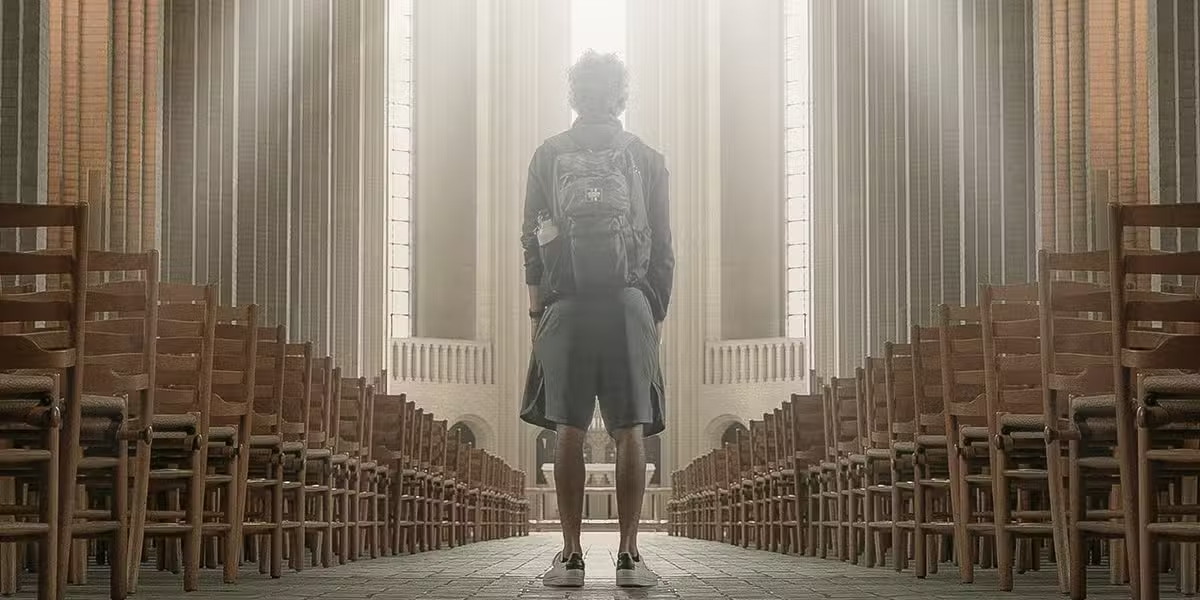(OSV News) — Bishop Mark J. Seitz of El Paso, chairman of the U.S. Conference of Catholic Bishops’ Committee on Migration, commended the Biden administration’s refugee admissions allocations for fiscal year 2024 as “an ambitious and meaningful goal as we reflect not only on the global need but also the challenges facing American communities, including labor shortages, a lack of affordable housing, and high inflation.”
On Sept. 29, President Biden signed a presidential determination authorizing the admission of up to 125,000 refugees eligible to enter the U.S. during fiscal year 2024, in accordance with the U.S. Immigration and Nationality Act.
Effective Oct. 1, which marks the start of the new fiscal year, the U.S. will allocate refugee admissions for 30,000-50,000 from Africa; 10,000-20,000 from East Asia; 2,000-3,000 from Europe and Central Asia; 35,000-50,000 from Latin America and the Caribbean; and 30,000-45,000 from the Near East and South Asia.
The president also specified that persons from Cuba, Eurasia, the Baltics, Iraq, El Salvador, Guatemala and Honduras “may, if otherwise qualified, be considered refugees for the purposes of admission” to the U.S., along with persons identified by a U.S. embassy in any location, under certain circumstances.
The updated ranges “are intended to provide flexibility as needs arise,” with the overall total capped at 125,000, said President Biden in his official determination.
The new numbers mark a decisive shift, substantially increasing the allocations for refugees from Latin American and the Caribbean, while decreasing totals for those from Europe and Central Asia.
“We welcome the Administration’s efforts to increase resettlement from the Western Hemisphere, while reiterating that this should not come at the expense of other populations,” said Bishop Seitz in a Sept. 30 statement.
He reaffirmed the bishops’ “solidarity with persecuted Christians around the world, especially those in the Middle East and Asia, who face increased barriers to accessing permanent protection.
“We implore the Administration to provide equitable access to refugee resettlement for these populations and to engage with host countries to promote their humane treatment,” he said.
Bishop Seitz urged Congress to “continue its unbroken history of bipartisan support” for the U.S. Refugee Admissions Program, which accepts referrals for refugees determined to be in need of third-country resettlement. Along with federal and United Nations agencies, the USRAP partners with a number of non-governmental organizations, including the USCCB’s Department of Migration and Refugee Services, to provide a pathway for refugee resettlement in the U.S.
The MRS initiative is “one of the ways in which the Catholic Church in the United States answers Christ’s call to welcome the stranger and carries out the Church’s commitment to protecting the life and upholding the dignity of every human person, from the moment of conception to natural death,” said Bishop Seitz.
He also called on lawmakers to enhance “resources for processing and domestic integration efforts” for refugees.
U.S. law, in accord with the 1951 U.N. Convention Relating to the Status of Refugees, defines “refugee” as one who is outside of their country of origin or habitual residence, due to persecution (or a well-founded fear of persecution) on account of race, religion, nationality, membership in a particular social group or political opinion.
According to the United Nations High Commissioner for Refugees, 108.4 million people worldwide are forcibly displaced — a total that represents internally displaced people (62.5 million), refugees (29.4 million, plus 5.9 million Palestinians classified as refugees by the U.N.) asylum seekers (5.4 million), and persons in need of international protection (5.2 million).
Most refugees (76%) are hosted by low- and middle-income countries, according to the UNHCR.
Over the past decade or so, the number of persons displaced globally has soared by almost 154%, from 42.75 million in 2012 to 108.4 million in 2022.
By Gina Christian | OSV News







News & Commentary
U.S. bishop urges bipartisan support for resettlement of refugees
(OSV News) — Bishop Mark J. Seitz of El Paso, chairman of the U.S. Conference of Catholic Bishops’ Committee on Migration, commended the Biden administration’s refugee admissions allocations for fiscal year 2024 as “an ambitious and meaningful goal as we reflect not only on the global need but also the challenges facing American communities, including labor shortages, a lack of affordable housing, and high inflation.”
On Sept. 29, President Biden signed a presidential determination authorizing the admission of up to 125,000 refugees eligible to enter the U.S. during fiscal year 2024, in accordance with the U.S. Immigration and Nationality Act.
Effective Oct. 1, which marks the start of the new fiscal year, the U.S. will allocate refugee admissions for 30,000-50,000 from Africa; 10,000-20,000 from East Asia; 2,000-3,000 from Europe and Central Asia; 35,000-50,000 from Latin America and the Caribbean; and 30,000-45,000 from the Near East and South Asia.
The president also specified that persons from Cuba, Eurasia, the Baltics, Iraq, El Salvador, Guatemala and Honduras “may, if otherwise qualified, be considered refugees for the purposes of admission” to the U.S., along with persons identified by a U.S. embassy in any location, under certain circumstances.
The updated ranges “are intended to provide flexibility as needs arise,” with the overall total capped at 125,000, said President Biden in his official determination.
The new numbers mark a decisive shift, substantially increasing the allocations for refugees from Latin American and the Caribbean, while decreasing totals for those from Europe and Central Asia.
“We welcome the Administration’s efforts to increase resettlement from the Western Hemisphere, while reiterating that this should not come at the expense of other populations,” said Bishop Seitz in a Sept. 30 statement.
He reaffirmed the bishops’ “solidarity with persecuted Christians around the world, especially those in the Middle East and Asia, who face increased barriers to accessing permanent protection.
“We implore the Administration to provide equitable access to refugee resettlement for these populations and to engage with host countries to promote their humane treatment,” he said.
Bishop Seitz urged Congress to “continue its unbroken history of bipartisan support” for the U.S. Refugee Admissions Program, which accepts referrals for refugees determined to be in need of third-country resettlement. Along with federal and United Nations agencies, the USRAP partners with a number of non-governmental organizations, including the USCCB’s Department of Migration and Refugee Services, to provide a pathway for refugee resettlement in the U.S.
The MRS initiative is “one of the ways in which the Catholic Church in the United States answers Christ’s call to welcome the stranger and carries out the Church’s commitment to protecting the life and upholding the dignity of every human person, from the moment of conception to natural death,” said Bishop Seitz.
He also called on lawmakers to enhance “resources for processing and domestic integration efforts” for refugees.
U.S. law, in accord with the 1951 U.N. Convention Relating to the Status of Refugees, defines “refugee” as one who is outside of their country of origin or habitual residence, due to persecution (or a well-founded fear of persecution) on account of race, religion, nationality, membership in a particular social group or political opinion.
According to the United Nations High Commissioner for Refugees, 108.4 million people worldwide are forcibly displaced — a total that represents internally displaced people (62.5 million), refugees (29.4 million, plus 5.9 million Palestinians classified as refugees by the U.N.) asylum seekers (5.4 million), and persons in need of international protection (5.2 million).
Most refugees (76%) are hosted by low- and middle-income countries, according to the UNHCR.
Over the past decade or so, the number of persons displaced globally has soared by almost 154%, from 42.75 million in 2012 to 108.4 million in 2022.
By Gina Christian | OSV News